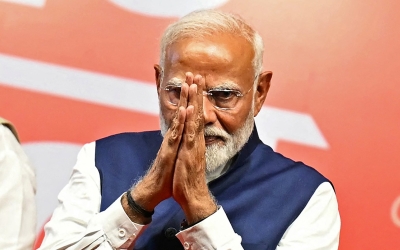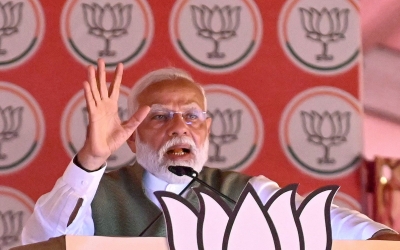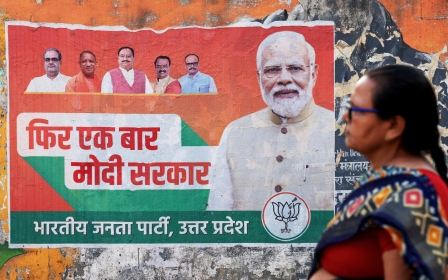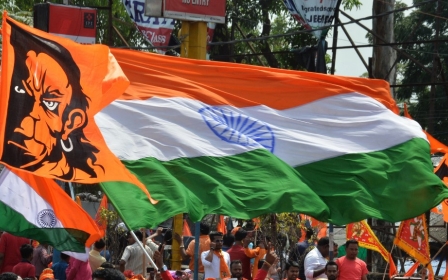Why Narendra Modi's heavy losses in India's election could be a red herring
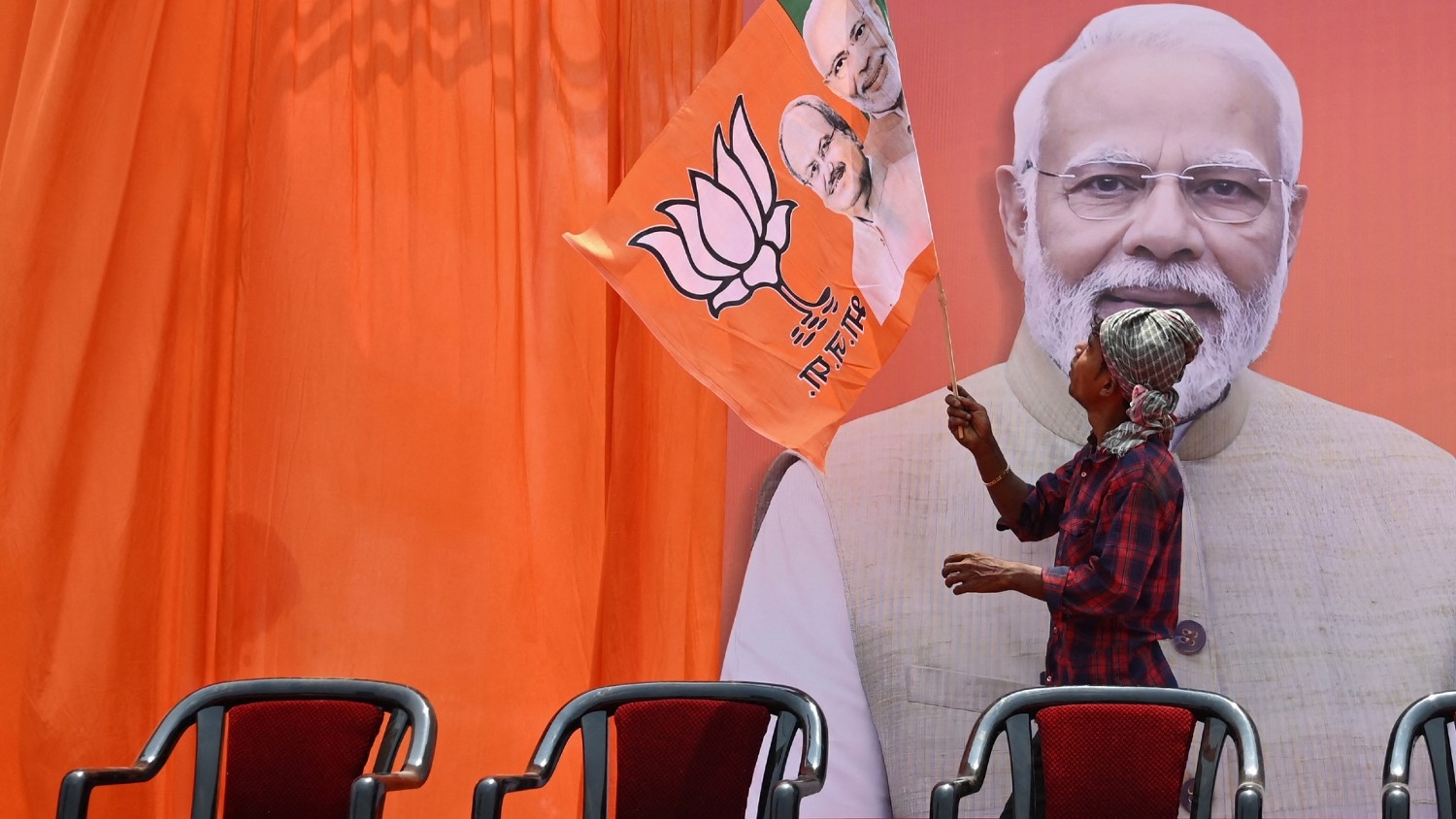
If you read the headlines of Indian or major western publications, you'd think Indian democracy is now safe and the restraining influence of coalition politics will ensure that Narendra Modi, India's prime minister, would govern differently. But that is far from the truth.
To be sure, there are signs of hope.
Modi - who personifies the Hindu nationalistic politics of the Bharatiya Janata Party - has suffered a defeat. The two-term prime minister who made the campaign entirely about himself - one of his slogans was “Modi-ki guarantee”, which means a personal assurance from Modi, for whatever electoral promises he was making - will now form the next government, but not on his terms.
So why did support for Modi shrink?
The voters were more discerning. They had seen their wealth eroded when the government quixotically demonetised high-value Indian currency notes in 2016, ostensibly to break the back of terrorism and curb illicit transactions, but, realistically, to stop the flow of funds to the opposition during crucial elections.
New MEE newsletter: Jerusalem Dispatch
Sign up to get the latest insights and analysis on Israel-Palestine, alongside Turkey Unpacked and other MEE newsletters
And the poor? Well, they slipped further into poverty.
A few years later, pandemic measures to shut the country down left so many of the millions of Indian migrants on daily wages homeless and without resources. Many had to trek back to their homes, walking hundreds of miles, and many lost their lives along the way.
Yet, Modi continued to win elections on a simple formula: blame neighbours for terrorism, China for the pandemic and offer Hindu nationalism to your voters.
The prime minister oversaw the construction of a Hindu temple in Ayodhya on the ruins of Babri Masjid, razed by Hindu zealots in 1992, a construction permitted by a pliant Supreme Court in 2019 in an unsigned judgment.
When Modi consecrated the temple honoring Lord Rama on that disputed site in early 2024, it seemed all of India was in a frenzy. However, last week, once all votes were counted, Modi's BJP lost the very seat from Faizabad, where Ayodhya is situated. His electoral margin shrank significantly. The rival he continued to mock – Rahul Gandhi – not only won in northern India but retained his seat in southern India with a record-breaking margin.
The BJP remains in power. But it won just 240 seats out of 542, short of a majority, and is now dependent on minor parties. It is now a hobbling coalition ruler, and Modi will have to compromise and work with others - skills he has never had to hone and does not seem interested in.
Minorities ruled
The last 10 years have been disastrous for Indians who care for democracy and human rights. Thousands of Indians who dissent are in jail without trial. Many more draw the right lesson and stay silent.
Eight of the 16 dissenting writers, human rights activists, lawyers and academics jailed without being charged, are still in jail; the rest are out on bail. One such detainee, an octogenarian Jesuit priest, died while in custody.
Since Modi came to power, hundreds of mosques and shrines belonging to Muslims have been razed. Many churches have been torched, and last year an archbishop said that 249 churches were destroyed in just 36 hours. Muslims cannot befriend Hindus; Muslim men falling in love with Hindu women run the risk of being murdered or lynched.
Muslims carrying out legitimate activities of trading cattle or legally slaughtering meat are harassed, if not killed. Muslims cannot buy, sell or consume meat in certain parts of cities at certain times of the month because there is an obscure Hindu festival. (That assumes Hindus are vegetarians; some are, many are not).
Muslims cannot rent property in areas they wish to live in; Hindus who sell property to Muslims are harangued or ostracised and transactions get canceled. Muslims who apply for jobs realise they won't get interview calls because of their faith.
Modi's administration introduced the discriminatory Citizenship Amendment Act. Muslim women braved bitter cold in
Delhi and opposed it, stalling it and they dispersed from a park after months only because the pandemic compelled them to do so.
Poverty strikes back
The Modi years have been terrific for the rich - magazines like Forbes show how India has more billionaires than ever, and scan through the list, and an overwhelming majority of them are upper caste Hindus.
Research from the French economist Thomas Piketty shows that India today is a more unequal society than during the colonial era of the British Raj. The vast majority of Indians rely on food handouts from the state. The Gini coefficient, which measures income inequality, is wider than ever.
The bulk of the unemployed are the young, creating a vast army of restless, angry youth; and all that Modi has offered them in the past decade has been an enemy to hate: the outsider, the Muslim, the religious minority.
And yet, the poor have spoken out, as they have done in India, always. Not by eating the rich, but by voting. Vast parts of rural India voted against Modi's party. True, under Modi, India increased the number of cities with metros, built universities, increased wind farms, built bridges and toll roads, saw the erection of shopping malls, refurbished airports and Indian air carriers bought more planes.
But if you own a rickety bicycle, you need a safe, well-lit road without potholes, not a toll road. You are not going to fly to far-flung places. You need stable electricity, and if in building that wind farm your rice farm is taken away, you would be angry. If you don't live in the city, that metro is meaningless. And those bridges serve little purpose for you.
And so the poor voted for opportunities that mean something to them – energy, roads in their vicinity and water. They sought justice. The opposition understood that, and said it would fight to offer that. While it did not win, it came close.
It has stalled the relentless advance of the privileged, reminding them that there are many more without those privileges, and you can't disregard or erase them. Nor can you buy them off by offering the spectacle of a temple that serves little purpose other than humiliating Muslims and undermining the idea of India.
There are many who would like to believe that the BJP would learn the lesson from this, and amend its ways, and make India's weakest and poorest the priority. But leopards don't change their spots that easily.
Modi 3.0?
One scenario is that Modi 3.0 will be a different, caring, compassionate leader who will act with humility. But then look at his record: helicoptered in to rule the western state of Gujarat in 2001, he has won successive elections in Gujarat, and now India, without needing external support. There is a sense of hubris, of course, he has never needed other.
Now he has to set aside his ego and work with others, negotiate and compromise. Those who know him, and his style, laugh when optimistic analysts hope that Modi would act differently.
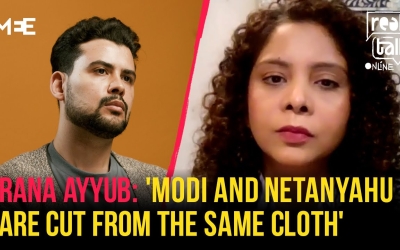
And that is the danger. In the 23 years he has been a ruler – till 2014 in Gujarat, and since then, India – he has shown little evidence of working collegially with others.
Rather, he has nodded, winked at and emboldened the elements of the Hindu fundamentalist foot-soldiers, with the tacit promise that they would not get prosecuted, and if at all arrested, released soon. And someone will be on hand to garland them when they are released.
As Modi begins what is most likely his final term in office, he has little to lose. He has never admired India's pacifist heroes, like Mohandas Gandhi. He has bowed to weapons and portraits of militant Hindu nationalists.
To stop him from acting as per his baser instincts, India's judiciary, bureaucracy, police forces and the military would have to discover the spine they have not shown, and uphold the constitution, and not be the handmaidens of the administration of a doctrine that the majority of Indians have continued to reject and protect the republic.
It is always the darkest before dawn, but these election results show the thin glowing line of the emerging dawn.
Middle East Eye delivers independent and unrivalled coverage and analysis of the Middle East, North Africa and beyond. To learn more about republishing this content and the associated fees, please fill out this form. More about MEE can be found here.


